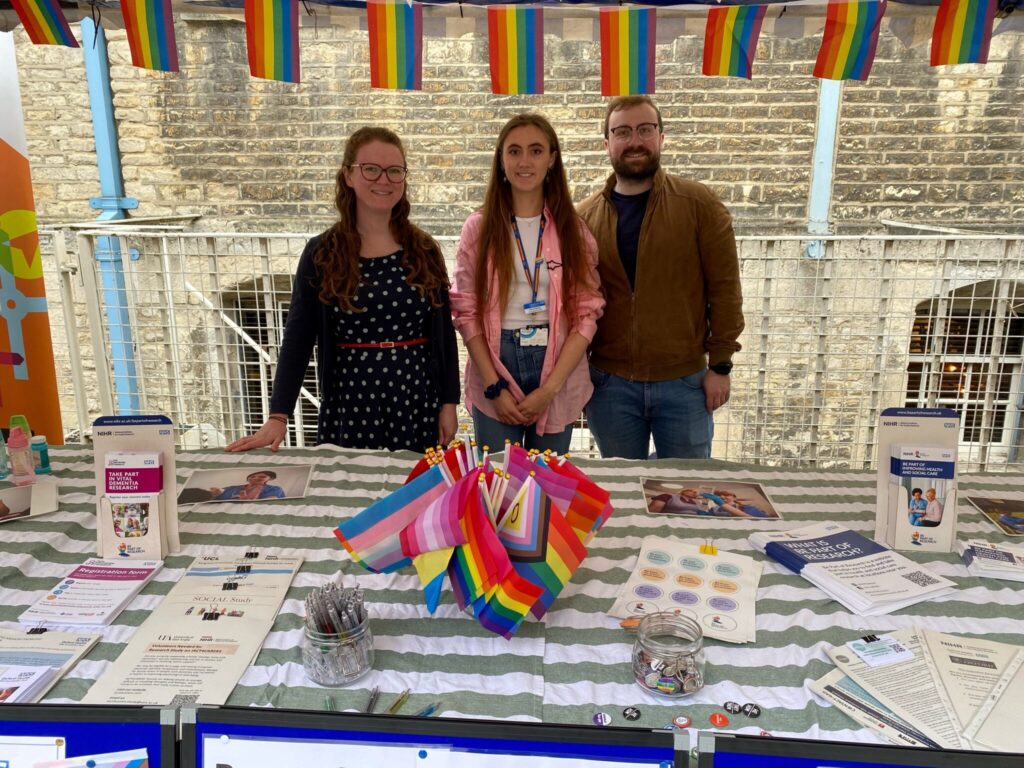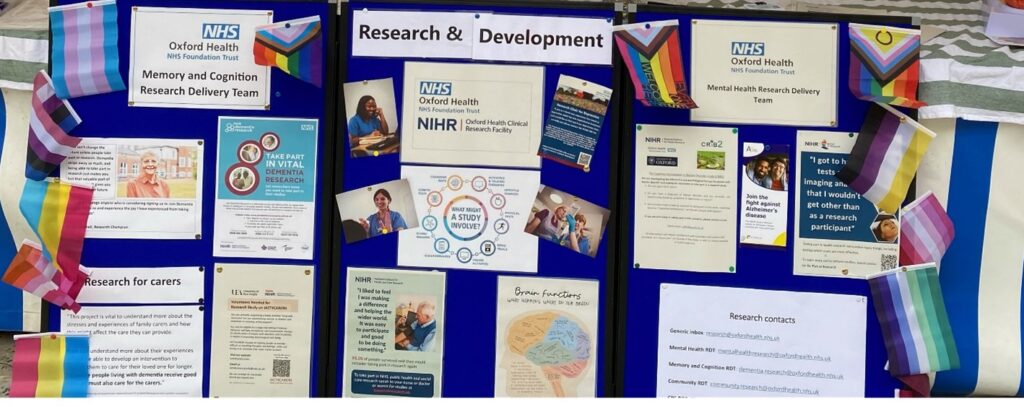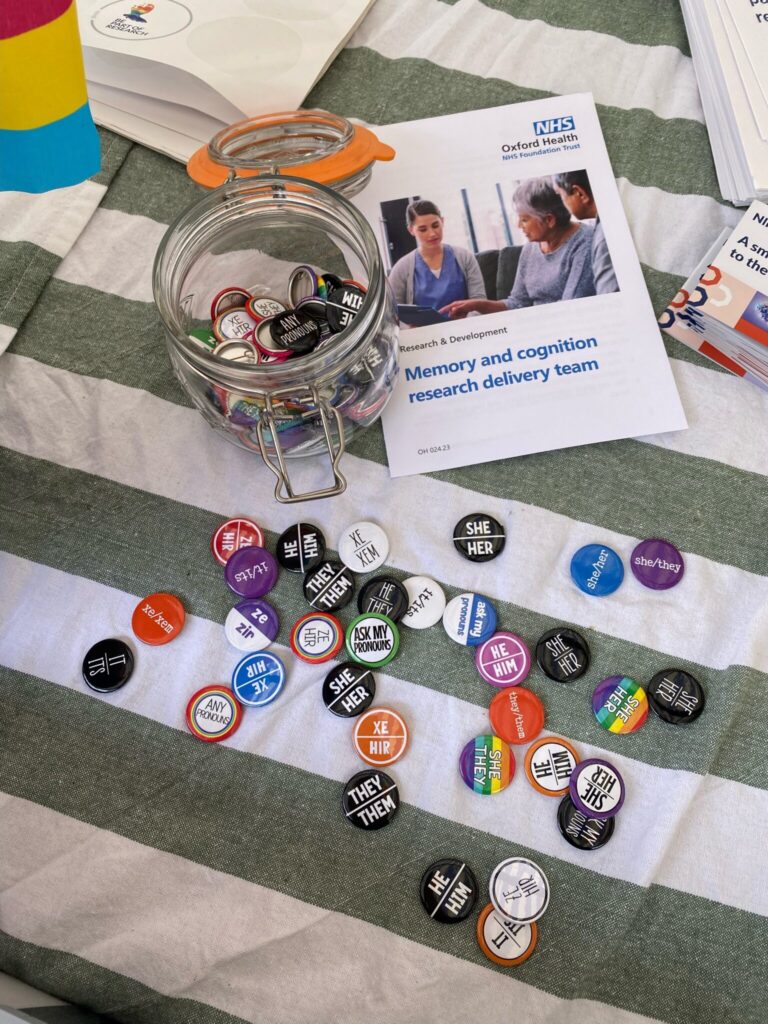What is Pride and why did we attend?
The Oxford Pride 2024 celebrated the LGBTQIA+ community and its 21st anniversary of the event with the theme “One City – One Pride: Embrace Your Rainbow.” The day brought Oxford’s diverse communities together for an annual parade through the city centre, celebrating unity and inclusivity.

Research staff at Oxford Health’s Clinical Research Facility (CRF) and the Research Delivery Teams from Oxford Health NHS Foundation Trust ran a joint stall at Oxford Pride to show support for the LGBTQIA+ community and seek feedback from attendees on their awareness of mental health research, many of whom hadn’t heard about research opportunities before.
Attending the event also provided colleagues the opportunity to speak to members of the LGBTQIA+ community who offered ideas of how to make research more inclusive.
What did we do?

The stall was staffed on the day from 8am to 5pm by colleagues from the CRF and the Trust’s Mental Health and Memory and Cognition Research Delivery Teams. Colleagues provided information to a diverse range of attendees about current research studies and ways to get involved. Hundreds of Pride flags, pens and pronoun badges were handed out to their many stall visitors.

The stall drew a lot of attention from children who enjoyed looking at a model of the brain. Researchers also spoke with older children and young people who are interested in learning more about different career options in medicine and clinical research.
What have we learnt?
Visitors to the stall were invited to provide feedback on their awareness of research and suggestions on how to make research more accessible.
Questions asked and a selection of responses included:
What would make you want to volunteer for a research study?
“I would like to volunteer for research specific to my experiences as a woman with ADHD”.
“Knowing it will improve care for patients and members of my community”.
“To help the younger generation get support”.
“An incentive”.
“Ease of access (easy sign up and instructions)”.
“Understand why the study is being done”.
What do you think about when someone says, “mental health research”?
“Research for mental health treatments, new medicines and therapies”.
“Quiz/interview RE mental state”.
“Helping people suffering and helping them”.
“If asking me to join a study, I’d be concerned about anonymity and having my private information shared (even though I know it would be anonymised)”.
“More work or publicity needed for community care”.
“Making life easier and teaching/learning coping mechanisms”.
What can we do to make research accessible for you?
“I think it already is, but it would be good to be able to access more papers without them being locked behind paywalls”.
“Approach via email”.
“More advertisement”.
“During school holidays”.
“Flexibility of time to enable me to continue regular work hours”.
“More information about the specifics”.
“Advertising in newspapers”.
Have you learnt anything surprising about our research today?
“How many studies you can take part in”.
“I have learnt about the important work you’re doing”.
“Intersection of care services and research between dementia / neurodegeneration disorders and care for conditions associated with queer communities”.
“Yes, how many different ways of getting involved”.
“How varied it is”.
Debbie Moll, Research Speech and Language Therapist in the Memory and Cognition Research Delivery Team and Patient and Public Involvement Lead at the CRF said: “It was fantastic to be back again this year at Oxford Pride, raising awareness of the research we are carrying out in Oxford Health, at the Clinical Research Facility, Memory and Cognition research delivery team and Mental Health research delivery team.
“We spoke to some lovely attendees who were interested in learning more about recent developments in mental and cognitive health and getting involved in studies themselves. Overall, it was a great day and the team and I are already looking forward to going back next year!”
Why is diversity and inclusion important in research?
The importance of research in improving health outcomes is widely recognised. A lack of inclusivity in research can result in health inequalities, with effective treatments identified for some communities but not for others.
Therefore, it is crucial for researchers to ensure diversity and representation among research participants, staff and advisors, by incorporating advice from “under-represented” communities, such as the LGBTQIA+ community.
To contact the CRF email: [email protected]
